Eastern Himalayan NaturenomicsTM Forum 2021
The wealth of our nature contributes more than US$125 trillion to the global economy every year. Environmental degradation will only be made history, when nature enters economic calculations and accounts for its role in the development models and human well- being. As the world gears up to set key climate goals at COP26 in Glasgow this year, countries and corporations are racing to institute new policies to limit carbon emissions and invest in sustainable business models and practices. This is an opportunity to take immediate actions to end the fossil fuel era and curtail habitats loss to boost resilience to the impacts of climate challenges.
The 9th Eastern Himalayan NaturenomicsTM Forum 2021 will drive conversations on Ecology is Economy and foster a critical debate on preserving this balance between conservation imperatives and human development through the creation of ecologically compliant assets, for ecology and economy in interdependence. Achieving this transition through natural capital, however, means a fundamental rethink of how we account for natural capital. We need new methods for valuing and amplifying natural capital – across our value & supply chains, and our economy.
Interdependence of Ecology & Economy: Valuing Nature
The journey towards Ecology is Economy is the most critical step we can take towards making nature, rural livelihoods, and our economy self-sustaining. We need a mindset shift: Ecology is no obstacle to the goal of development. Rather, it is the underpinning powerhouse of our economy—and unlike other finite resources, can be regenerated to sustain futures. 2020 has conclusively demonstrated, our interdependence with nature: economic, social and cultural. Around the world, governments and business leaders are slowly waking up to the fact that good ecology is good economy. But the move to adopt this principle has been a slow and uphill struggle – and the move to redesign economies and businesses for interdependence with nature has so far been inadequate to respond to the enormous scale of the challenges of our time.
The need for a holistic, multidimensional approach to action in the Eastern Himalayan region has never been more critical. The Eastern Himalayas retain 60% its forest cover today, but only 25% of the region’s original habitats survive today. Deforestation in the region is rampant. According to the 2019 Forest Survey of India, 74% of net deforestation in India occurred in the North East states. These shrinking forests have cascading effects on the regional landscape. On average, approximately 23% of the land in the region is desertified.
The future of the Eastern Himalayas today lies in recognizing ecology is economy
Key Themes
7th Dec '21
15:00 -15:25 IST
REFLECTIONS ON LIMIT TO GROWTH : LOOKING THROUGH THE LENS OF ECOLOGY IS ECONOMY
7th Dec '21
15:25 -15:45 IST
A VISION FOR ECOLOGY IS ECONOMY: THE GLOBAL ECONOMIC OUTLOOK (PART - 1)

S. Ramadorai
Chairperson, Governing Board of TISS, India
Mr. Ramadorai, a recipient of the prestigious Padma Bhushan award, is the former CEO and MD of Tata Consultancy Services and former Chairman of the National Skill Development Agency (NSDA). He is also the Chairman of Tata Advanced Systems Ltd. and Tata
Technologies Ltd. He continues to be an Independent Director on the Boards of Hindustan Unilever Limited, Asian Paints Limited and Piramal Enterprises Limited.
Mr. Ramadorai also serves as the Chairman on the Council of Management at the National Institute of Advanced Studies (NIAS), is Chairman of the Governing Board at the Tata Institute of Social Sciences (TISS) and President of the Society for Rehabilitation of Crippled Children (SRCC).
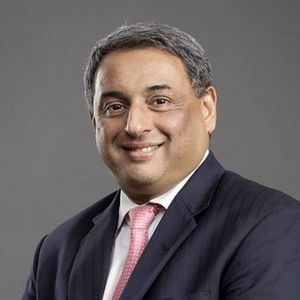
T.V. Narendran
Managing Director, Tata Steel, India
Mr. T V Narendran is the CEO & MD of Tata Steel Limited. As the CEO & MD, he oversaw the acquisition of Bhushan Steel Limited (now known as Tata Steel BSL Limited) and the steel business of Usha Martin Limited. Earlier, as the Managing Director, he successfully executed Tata Steel’s Greenfield expansion at Kalinganagar.
He has over 30 years of experience in the Mining and Metals industry.
Mr. Narendran is currently on the Boards of Tata Steel Limited and Tata Steel Europe. He is the Chairman of Tata Steel BSL Limited, Tata Sponge Iron Limited, and the Board of Governors of XLRI Jamshedpur.
Mr. Narendran is a member on the Board of the World Steel Association and is a member of its Executive Committee. He was the co-chair of the Mining & Metals Governors Council of the World Economic Forum from 2016 to 2018. He is also a member of the BRICS Business Council. He is the Vice President of the Confederation of Indian Industry, is the Vice President of the Indian Institute of Metals, and is the President of the Indian Steel Association.
Mr. Narendran is a Mechanical Engineer from NIT Trichy, and completed MBA from IIM Calcutta. He is a recipient of Distinguished Alumnus Awards from both NIT Trichy and IIM Calcutta. He is a Chevening Scholar and has also attended the Advanced Management Programme in CEDEP-INSEAD, Fontainebleau, France.
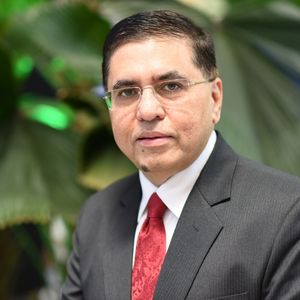
Sanjiv Mehta
Chairman & Managing Director, Hindustan Unilever, India
Sanjiv Mehta is the Chair and Managing Director of Hindustan Unilever Limited (HUL). He has been leading Unilever’s business in India and the South Asia cluster since October 2013.
Sanjiv brings with him a wealth of experience. He has been with Unilever for nearly 28 years and, for the last 19 years, he has led Unilever businesses in different parts of the world.
Sanjiv holds a Bachelor’s degree in commerce (India) and is a Chartered Accountant from The Institute of Chartered Accountants of India. He has also completed the Advanced Management Program at Harvard Business School.
Sanjiv is a Director on the Board of Indian School of Business, Senior Vice President of Federation of Indian Chambers of Commerce and Industry, member of the Breach Candy Hospital Trust (Mumbai, India) and South Asia Advisory Board of Harvard Business School. He chairs ‘Vikaasa,’ a coalition of top Indian and MNC companies and Co-chairs the Advisory Network to the High-Level Panel for a ‘Sustainable Ocean Economy.’
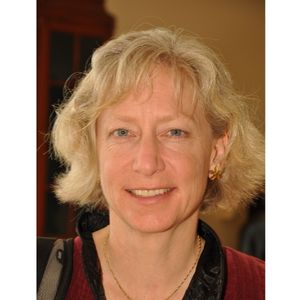
Gretchen C. Daily
Co-Founder & Faculty Director, Natural Capital Project, Stanford University, USA
Gretchen C. Daily is co-founder and Faculty Director of the Stanford Natural Capital Project. Founded in 2005, the Natural Capital Project (NatCap) is a global partnership whose goal is to integrate the values of nature into planning, policy, finance, and management. Its tools and approaches are now applied in 185 nations through NatCap’s free, open-source InVEST Software Platform.
Daily is the Bing Professor of Environmental Science in the Department of Biology at Stanford University, the Director of the Center for Conservation Biology at Stanford, and a senior fellow at the Stanford Woods Institute for the Environment.
Daily’s work is focused on understanding human dependence and impacts on nature and the deep societal transformations needed to secure people and nature. Her work spans fundamental research and policy-oriented initiatives to open inclusive and green development pathways. She co-develops pragmatic approaches, engaging with governments, multilateral development banks, investors, businesses, farmers and ranchers, communities, and NGOs.
Together with many colleagues, Daily has published several hundred scientific and popular articles, and a dozen books, including Nature’s Services: Societal Dependence on Natural Ecosystems (1997), The New Economy of Nature: The Quest to Make Conservation Profitable (2002), Natural Capital: Theory and Practice of Mapping Ecosystem Services (2011), The Power of Trees (2012), One Tree (2018), Green Growth that Works: Natural Capital Policy and Finance Mechanisms Around the World (2019), and Rural Livelihood and Environmental Sustainability in China (2020 in English).
Daily is a fellow of the U.S. National Academy of Sciences, the American Academy of Arts, and Sciences and the American Philosophical Society.
She has received numerous international honors including the 2020 Tyler Prize for Environmental Achievement, 2017 Blue Planet Prize, 2019 BBVA Frontiers of Knowledge Award, 2012 Volvo Environment Prize, 2010 Midori Prize for Biodiversity, and the 2009 International Cosmos Prize.
Research Interests: Conservation Science – Countryside Biogeography – Dynamics of Biodiversity Change – Harmonization of Biodiversity Conservation and Agriculture – Valuation of Ecosystem Services – Policy and Financial Analysis for Integrating Conservation and Human Development.
7th Dec '21
15:45 -16:45 IST
VALUATION OF NATURAL ASSETS : DESIGNING ECOLOGICAL BUDGETS FOR NATURE CAPITAL ENHANCEMENT
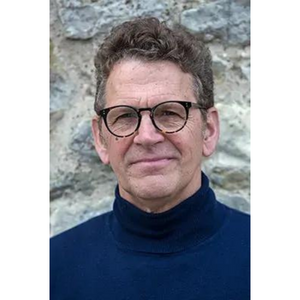
Paul Jepson
Nature Recovery Lead, Ecosulis, UK
Paul recently left an academic position directing Oxford University’s MSc Biodiversity, Conservation and Management course to work more directly at the intersection of natural asset restoration, finance and technology. Hepreviously worked for 15 years in Indonesia running and designing conservation programmes, and started his career in local government working on urban conservation projects in Manchester and Shrewsbury.
Paul is passionate about innovation and working with clients to research and co-design new approaches and solutions. He is a creative, interdisciplinary thinker who contributes a unique blend of theory, practical experience and cutting-edge knowledge. Widely published and a regular contributor to TV documentaries and radio, he has a doctorate in protected area policy, co-founded the fields of conservation biogeography and conservation culturomics, and is a member of the Rewilding Europe supervisory board. He is also skilled at convening and managing working groups who can look beyond the present to frame and inspire next generation policy, enterprise and practice
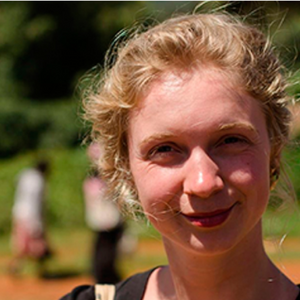
Iris Visser
Nature Capital Analyst, Nature squared, Netherlands
Iris is an Analyst and connector. Iris works on achieving a just and inclusive world and views sustainable agriculture as the crucial link. After her degree in Social Geography (University of Copenhagen), she started working at Nature^Squared. As befits a true geographer, she easily switches between different scale levels and knows how to combine economic, environmental and social questions. Iris brings valuable international experience and mainly works on delivering projects for our corporate clients, with a specific focus on the transformation of supply chains.
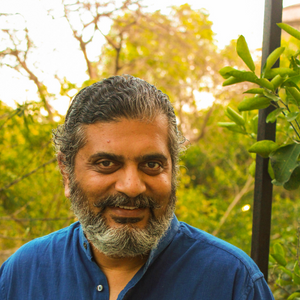
Laveesh Bhandari
Indicus Foundation, India
Dr. Laveesh Bhandari is an empirical economist, environment evangelist, and entrepreneur and focuses his attention almost exclusively on improving the environment. He is currently the President of Indicus Foundation and leads its Environment and Sustainable Livelihoods initiative.
Laveesh has rich published research output to his credit pertaining to sustainable livelihoods, industrial, economic and social reforms in India, economic geography, and financial inclusion.

Ankit Jha
Rural Futures Knowledge & Advocacy, Balipara Foundation, India
A post-graduate in Ecology, Environment and Sustainable Development from Tata Institute of Social Sciences, Ankit is associated with Balipara Foundation’s Naturenomics™ Executive Vertical as a researcher. Ankit brings in his sociological expertise to the organisation in analysing and resolutioning the trade-off between society and environment. As a Researcher, Ankit is involved in bridging knowledge gaps and develops publication material as a part of the foundation’s communication strategy. Currently, he is working on socio-economic and environmental policy research with regards to the Eastern Himalayan region and aims to contribute in building a sustainable future for the local communities as envisioned by the foundation. Ankit is also involved in a habitat restoration program at the Kaziranga National Park. His previous work stints have ranged from conducting socio-economic studies and stakeholder outreach while working on community centric mindful eco-tourism in Uttarakhand to developing communication materials and successfully conducted a research project on Climate Resilient Zero Budget Natural Farming in Andhra Pradesh, also studied the impact of ZBNF on biodiversity of the state.
7th Dec '21
17:00 -17:45 IST
INTERLINKAGES BETWEEN NATURAL ASSET REGENERATING ECONOMIES AND HUMAN WELL-BEING

Richard Hawkes
Chief Executive, British Asian Trust, UK
Richard joined the British Asian Trust as Chief Executive in 2015. He has held a range of senior roles in the UK and international not-for-profit sector for more than 25 years, including working for the United Nations and being Chair of BOND (the umbrella body for UK international NGOs) for five years. He is a Trustee of UNICEF UK, a member of the Advisory Board of the World Humanitarian Forum and of the UK’s Charity Bank. He is Chair of international NGO Motivation and a member of the judging panel for the UK Charity Awards. He has previously been CEO of Scope and Sense International and International Programmes Director of VSO.
In addition to leading various organisations, Richard has a vast experience of social finance. As CEO of Scope he was responsible for launching the first social investment bond in the UK, a £20m bond that was listed on the Luxembourg Stock Market. Scope was the only UK charity involved in the G8 summit on social investment, as well as being listed on the Social Stock Exchange. The British Asian Trust has launched the world’s largest education Development Impact Bond and is currently developing a number of other innovative products across South Asia.
In October 2020 Richard was awarded an OBE for his contribution to the charity sector.

Amanda Janoo
Knowledge & Policy Lead, Wellbeing Economy Alliance, Scotland
Amanda Janoo is the Knowledge and Policy Lead for the Wellbeing Economy Alliance (WEALL). Amanda is an economic policy expert with over a decade of experience working with governments and international development institutions around the world. Her work aims to build just and sustainable economies through goal-oriented and participatory policy design processes.

Pianporn (Pai) Deetes
Regional Campaigns and Communications Director, International Rivers, Thailand
Pai Deetes is the Thailand and Myanmar campaigns director for International Rivers, a global NGO working to defend the rights of rivers and communities. For 16 years, Pai has actively worked to protect Southeast Asia’s major rivers, the Mekong and Salween.
A pioneer in her work with Thai and Burmese ethnic grassroots organizations, She organizes river communities to slow down dam projects along the Salween River that threaten the local ecosystem and the livelihoods of those who depend on the river and its resources. Ms Deetes forms community action groups to push for long-term policy and legislation that includes their participation in risk analysis of development projects

Julie Stein
Executive Director & Co-Founder, Wildlife Friendly Enterprise Network, USA
With 20 years of conservation and development experience, Ms. Stein works to reduce human-wildlife conflict around the world by building markets and wildlife-friendly supply chains for goods and services that achieve triple-bottom-line goals of people, profit, and planet. She leads signature efforts to link certified enterprises which protect the world’s most endangered wildlife with global partners in the food, health and beauty, textile and tourism sectors. Ms. Stein consults with Corporate Members seeking to achieve conservation goals in high biodiversity landscapes and participates in public-private partnerships to quantify and improve outcomes in raw materials sourcing for the benefit of people and wildlife around the world. She is a co-founder of the Wildlife Friendly Enterprise Network and Certified Wildlife Friendly®. Ms. Stein holds a B.A. in Art History from the University of Virginia, and a M.E.S. in Conservation Biology from the Yale School of Forestry.

Binita Kakati
Rural Futures – Human Ecologist, Balipara Foundation, India
Binita, is a doctoral candidate in Global and Area Studies at the Institute of Asian and African Studies, Humboldt-Universität, Berlin. She has a M.A in Gender Studies from Ambedkar University, Delhi and a B.A in Sociology from Lady Shri Ram College for Women. Her previous work experience has been in conducting policy analysis and research in Assam and Meghalaya.
With the Foundation, her work involves conducting qualitative and quantitative research, formulating research methodologies, assessment, and specifics of project objectives and their long-term impact assessment through the RuFu index which is used to capture positive biodiversity changes, ecological-cultural aspirations and human-nature relationships. She is interested in the ways that development can move away from the current polarised framework to create alternative understandings and trajectories of growth situated in the global south.

Joanna Dawson
Rural Futures – Anthropological Visioner, Balipara Foundation, India
Joanna Dawson is involved in developing strategy, publications and partnerships for the Balipara Foundation, to advance the organization’s vision and goals for the Eastern Himalayas. She brings an anthropological approach and experience in the development sector and marketing to the table to develop the organization’s human-centric conservation strategy & growth. Joanna is also involved in shaping the organization’s thought leadership and original material for the Foundation’s communications strategy & publications, including articles in regional & national publications. Her current projects include policy research and an index for social and ecological indicators to enhance impact monitoring. Her prior experience is in the development sector in India, and in marketing – communications, analysis and research, and she holds a Master’s degree in anthropology
7th Dec '21
17:45 -18:00 IST
RINGSIDE REFLECTIONS ON GLASGOW CLIMATE PACT
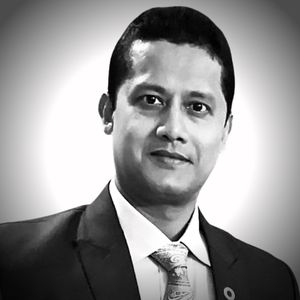
Rituraj Phukan
Founder, Indigenous People's Climate Justice Forum, India
Secretary General of Green Guard Nature Organization, Ritu Raj Phukan recently represented India as an official team member on the Climate Force Arctic Expedition to the North Polar region. He was the only person from Assam invited to accompany legendary explorers Robert and Barney Swan and a team of scientists, activists and thought leaders from different climate change impacted regions of the world.
Earlier, he was a member of the International Antarctic Expedition 2013 and the third person from Assam to have set foot on Antarctica. He also had a book release in the North Polar region, a first for the region, perhaps the only one from the country to have had a book release in the Arctic. The book Fin Del Mundo- Lessons from the End of the Earth, authored by Raj, is about his journey from Assam to Antarctica to learn about climate change impacts in the polar regions and its implications for the people of this region.
7th Dec '21
18:00 - 18:20 IST
A VISION FOR ECOLOGY IS ECONOMY: THE GLOBAL ECONOMIC OUTLOOK [PART – II]
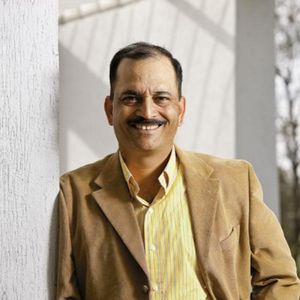
Nitin Paranjpe
Chief Operating Officer, Unilever, UK
Nitin was appointed as Chief Operating Officer on 1 May 2019 and has been a member of the Unilever Leadership Executive since October 2013.
In his COO role, he is responsible for delivering in year results (P&L) for Unilever globally.
In delivering this, he will focus on creating a faster and more responsive business focused on consumers and channels in each market. Nitin will also focus on leveraging synergies, building future capabilities, and accelerating the digitisation of the organisation.
His most recent role was President, Foods & Refreshment, and before this Nitin was President of Unilever’s Home Care Division from 2013 until 2017.
Nitin joined Unilever at Hindustan Lever Limited (India) in 1987 where he held various roles in marketing and sales. In 2000, he moved to Unilever London and was involved in a review of the organisation structure. During 2001, he worked as Executive Assistant to the Chairman and Unilever Executive Committee.
On his return to India in 2002, Nitin held more senior positions in laundry and household care, including Vice President Home Care, India (2004) and Executive Director for Home & Personal Care, India (2006).
In April 2008 he was appointed as Chief Executive Officer of Hindustan Unilever Limited, India and Executive Vice President for Unilever, South Asia.
For his efforts in blazing a trail for diversity, he won the GG2 Hammer Award in 2019. Previous winners were Mayor of London, Sadiq Khan and Chancellor of the Exchequer, Sajid Javid. In 2020 he was given a Kindness Award by the Women of the Future network in recognition of his leadership, guidance and empathy.
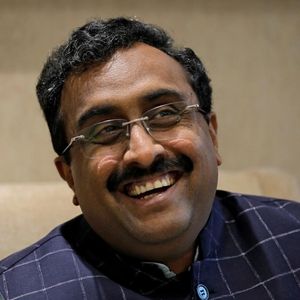
Ram Madhav
National General Secretary, Bharatiya Janata Party, India
Ram Madhav is an Indian politician, author and thinker who is the Former National General Secretary of the Bharatiya Janata Party (BJP) where in he handled the political affairs of Jammu and Kashmir and the North-Eastern States of India. He is a Member of the Board of Governors of India Foundation, a New Delhi based premier think tank. He also serves as a Member of the National Executive of the Rashtriya Swayamsewak Sangh (RSS).
A renowned author and thinker, Mr Madhav has over 200 publications to his credit. He has authored several books in English and Telugu. Some of his most recent works include “The Hindutva Paradigm – Integral Humanism and the Quest for a Non-Western Worldview” ; “Because India Comes First: Reflections on Nationalism, Identity and Culture” and Uneasy Neighbours: India and China after 50 years of the war”. He is a regular contributor on platforms like The Indian Express, Hindustan Times, and OPEN Magazine amongst others. He had been the editor of Bharatiya Pragna, a monthly magazine in English published by Pragna Bharati, and associate editor of Jagriti, a Telugu weekly.
Widely regarded for his contributions in the field of strategic thinking, political philosophy and India’s foreign policy, Mr Madhav has travelled widely and addressed forums like the Shangri-La Dialogue in Singapore, Raisina Dialogue in India, Halifax Security Forum in Canada, Sochi Eurasian Integration Forum in Russia, BRICS Political Forum in China, and the World Peace Conference in Thailand.

Paul Abraham
President of Hinduja Foundation, India
Joanna Dawson is involved in developing strategy, publications and partnerships for the Balipara Foundation, to advance the organization’s vision and goals for the Eastern Himalayas. She brings an anthropological approach and experience in the development sector and marketing to the table to develop the organization’s human-centric conservation strategy & growth. Joanna is also involved in shaping the organization’s thought leadership and original material for the Foundation’s communications strategy & publications, including articles in regional & national publications. Her current projects include policy research and an index for social and ecological indicators to enhance impact monitoring. Her prior experience is in the development sector in India, and in marketing – communications, analysis and research, and she holds a Master’s degree in anthropology

Charles Mindenhall
Co-Founder of Blenheim Chalcot, UK
Charles Mindenhall is Co-Founder of Blenheim Chalcot, the UK’s leading digital venture builder. Blenheim Chalcot traces its roots back to netdecisions which Charles and his business partner Manoj Badale founded back in 1998. Charles is a trustee of Onside Youth Zones, a charity providing state-of-the-art youth centres in deprived areas of the country, and chairs Onside in London, where they are currently rolling out 4 Youth Zones in the capital. Charles is also a Trustee of the Royal Foundation of the Duke and Duchess of Cambridge, and Mental Health Innovations (MHI). Charles has an MA in Philosophy and Psychology from Christ Church, Oxford University, and was formerly at Monitor Company.
The Blenheim Chalcot portfolio currently consists of 20 companies in multiple sectors, with combined group sales in excess of £350m per annum and employing more than 3,000 people.
8th Dec '21
15:00 -15:10 IST
LEADERSHIP ADDRESS : REWILDING THE FUTURE
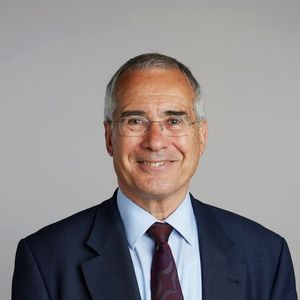
Lord Nicholas Stern
Chairman Grantham Research Institute on Climate Change and the Environment, London School of Economics, UK
Professor Stern is the IG Patel Professor of Economics and Government, Chairman of the Grantham Research Institute on Climate Change and the Environment and Head of the India Observatory at the London School of Economics. President of the British Academy, July 2013 – 2017, and was elected Fellow of the Royal Society in 2014.
Professor Stern has held academic appointments in the UK at Oxford, Warwick and the LSE and abroad including at the Massachusetts Institute of Technology, the Ecole Polytechnique and the Collège de France in Paris, the Indian Statistical Institute in Bangalore and Delhi, and the People’s University of China in Beijing.
He was Chief Economist of the European Bank for Reconstruction and Development, 1994-1999, and Chief Economist and Senior Vice President at the World Bank, 2000-2003.
He was Second Permanent Secretary to Her Majesty’s Treasury from 2003-2005; Director of Policy and Research for the Prime Minister’s Commission for Africa from 2004-2005; Head of the Stern Review on the Economics of Climate Change, published in 2006; and Head of the Government Economic Service from 2003-2007.
He was knighted for services to economics in 2004, made a cross-bench life peer as Baron Stern of Brentford in 2007, and appointed Companion of Honour for services to economics, international relations and tackling climate change in 2017. He has published more than 15 books and 100 articles and his most recent book is “Why are We Waiting? The Logic, Urgency and Promise of Tackling Climate Change”
8th Dec '21
15:10 -15:30 IST
A VISION FOR ECOLOGY IS ECONOMY: THE GLOBAL ECONOMIC OUTLOOK [PART – III]

N. Ganapathy Subramaniam
Chief Operating Officer & Executive Director, Tata Consultancy Services, India
Subramaniam (NGS) is the Chief Operating Officer (COO) of TCS since February 2017. NGS is also an Additional Director and Chairman of Tata Elxsi Limited since November, 2014.
Prior to taking over the COO’s role he served as the Executive Vice President and Head of TCS Financial Solutions, a strategic business unit of TCS. In that role, he was responsible for steering the non-linear growth strategies, Products and Platform businesses of TCS for over five years.
He has held many key leadership positions in TCS across Client Delivery, Business Development, integration of businesses and Product Development. As head of Banking and Financial Services practice for TCS for close to five years, he was instrumental in consolidating TCS’s knowledge base, calibrating domain centric offerings, creating opportunities and laid the foundation for its verticalization.
In steering TCS Financial Solutions, he led the company’s efforts in launching a suite of products for Banking, Capital Markets and Insurance domains – TCS BaNCS, many of which have become world class solutions used by major financial institutions globally.
He has been a part of TCS and the Indian IT Industry for the past 38 years. He has played a strategic role in several landmark projects that TCS undertook across geographies. He has in-depth knowledge on technology trends and systems policies of leading corporations. As a thought leader, he has spoken in global conferences and actively interacts and shapes opinion among industry analysts.
NGS joined TCS in 1982 after completing his Masters in Mathematics from University of Madras and has had the benefit of attending various training programs including the Executive program for Growing Companies at Stanford University.
NGS lives with his wife and two sons in Bangalore. An avid reader and keen supporter of community initiatives, NGS enjoys classical music, long walks and nature.

Sunil D’Souza
Managing Director & CEO, Tata Consumers Products Limited, India
Sunil D’Souza, Managing Director, Whirlpool of India has over 25 years of experience working in various leadership positions. Sunil D’Souza has rich and diverse experience in General Management, Strategy, Innovation in consumer Indian, international Sales, driven and Marketing and industries with multicultural experience. He holds a Bachelors in Electronics and Communication Engineering from Pondicherry Engineering College and an MBA from Indian Institute of Management, Kolkata. He joined Whirlpool from PepsiCo Inc. where his last assignment was in Malaysia as General Manager for the VIMAPS Region – Vietnam, Cambodia, Myanmar, Laos, Malaysia, Singapore, Indonesia, Brunei, Mongolia and Pacific Islands – which is one of the fastest growing business units within PepsiCo globally. In his 15 years stint with PepsiCo, D’Souza has held various senior management positions in Malaysia, Philippines and Vietnam. Prior to PepsiCo, Sunil has been with Coca Cola.
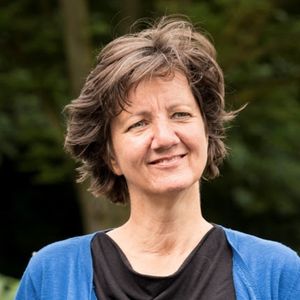
Désirée Driesenaar
External Expert at Blue Economy with European Commission, Netherlands
Desiree Driesenaar is an External Expert at Blue Economy with European Commission, Netherlands.She assesses subsidy programs for the European Commission. Her area of Expertise are Blue Economy and all related aspects.She offers Systemic solutions in her projects as a Freelancer.
She has also been the top-writer on Medium (English language) in several categories, such as future, sustainability, climate change, ideas, social media.

Vivek Pathak
Director & Global Head – Climate Business, International Finance Corporation, Hong Kong
Vivek Pathak is IFC’s Global Head and Director of Climate Business. In this role, he facilitates business growth, provides thought leadership, new product development and facilitates all work related to climate business. He is responsible for identifying new business opportunities for climate business and facilitating the mobilization of capital into this space. Prior to his current appointment, Mr. Pathak was IFC’s Regional Director for East Asia and the Pacific, leading advisory and investment operations across 18 countries, which in fiscal year 2020 reached US$4.2 billion in long-term investments, including funds mobilized from other investors. He has extensive emerging markets experience in principal investments, restructuring and risk management.
Earlier in his career, Mr. Pathak was Global Head and Director for Investment and Credit Risk, responsible for global coverage of credit risk, investment risk, integrity risk, pricing and credit/equity training. Prior to that he oversaw IFC’s portfolio in the Middle East and North Africa and led business development in frontier markets in the Middle East and North Africa. Before IFC, Mr. Pathak worked at Bank of America and ABN AMRO Bank in new business and risk management.
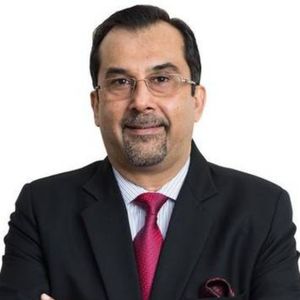
Sanjiv Puri
Chairman & Managing Director, ITC, India
Vivek Pathak is IFC’s Global Head and Director of Climate Business. In this role, he facilitates business growth, provides thought leadership, new product development and facilitates all work related to climate business. He is responsible for identifying new business opportunities for climate business and facilitating the mobilization of capital into this space. Prior to his current appointment, Mr. Pathak was IFC’s Regional Director for East Asia and the Pacific, leading advisory and investment operations across 18 countries, which in fiscal year 2020 reached US$4.2 billion in long-term investments, including funds mobilized from other investors. He has extensive emerging markets experience in principal investments, restructuring and risk management.
Earlier in his career, Mr. Pathak was Global Head and Director for Investment and Credit Risk, responsible for global coverage of credit risk, investment risk, integrity risk, pricing and credit/equity training. Prior to that he oversaw IFC’s portfolio in the Middle East and North Africa and led business development in frontier markets in the Middle East and North Africa. Before IFC, Mr. Pathak worked at Bank of America and ABN AMRO Bank in new business and risk management.
8th Dec '21
15:30 -16:30 IST
REWILDING FORESTRY : ENVIRONMENTAL INNOVATIONS FOR UNDERSTANDING THE IMPACTS OF CLIMATE CHANGE & BIODIVERSITY

Ruchika Singh
Director, Sustainable Landscapes and Restoration, World Resources Institute India, India
Dr. Ruchika Singh leads the Sustainable Landscapes and Restoration programme in India. Till January 2019, Ruchika anchored the restoration opportunity assessments for the Landscape Restoration programme at WRI India. Ruchika brings over eighteen years of extensive experience of conducting evidence-based research, programme management, assessments and evaluations related to various aspects of forest, water, tenure, resource rights, landscape management and governance issues, taking into consideration social inclusion and gender, from an interdisciplinary lens.
Ruchika also contributes to Cities4Forests, an initiative focused on helping cities better conserve, manage, and restore inner forests (such as city trees and urban parks), nearby forests (such as green corridors and watersheds) and faraway forests (such as tropical and boreal forests).
Prior to working with WRI, Ruchika was an independent research consultant for World Bank and led two studies on Forest Rights Act in India. Ruchika began her career with Foundation for Ecological Security (FES), Dahod where she worked with local community on issues of rights, livelihood, gender, and institution building for local self-governance and management of common land. Thereafter, while at Development and Research Service (DRS), New Delhi she was coordinating a ‘study to prepare a status report on the village industries in rural India’. She has also worked with Energy and Resources Institute (TERI), New Delhi.

Valter Ziantoni
Founder, CEO & Chief Strategist, PRETATERRA, Brazil
Valter Ziantoni is a Forest Engineer, Agroforestry expert working with local indigenous knowledge and applying systematized solutions to foster the success of sustainable projects. With more than 15 years of agroforestry experience, including expertise in project management and coordination, forest inventories and native monitoring, timber and NTFP classification in the Amazon. He has extensive experience in the rural economy and sustainable development models, with international experience (Laos, UNDP, and Turkey, FAO-SEC) in management and leadership positions. Has developed several voluntary works, mainly in Africa and Asia.
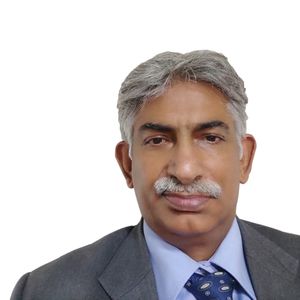
Ranjit Singh Gill
Principal Chief Conservator of Forests at Meghalaya State Forest Department, India
Assignments in last ten years
– Addl. Principal Conservator of Forests, Meghalaya, Shillong since July 2017
– Joint Director in Forest Survey of India, Dehradun between July 2010 and July 2017 on deputation with Government of India
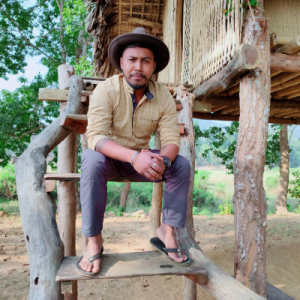
Sandeep Borah
Rural Futures – Communications Architect, Balipara Foundation (moderator)
A post-graduate in Mass Communication and Journalism from Tezpur Central University, Sandeep is designated as an Associate to the Forums of Balipara Foundation. Starting his journalism career in association to esteemed national and regional media organisations (ETV Bharat, Northeast Live & EastMojo) with an expertise in both digital and electronic media platforms as a content specialist /reporter, he is currently responsible in formulating and co-ordinating the Forums of Balipara Foundation across the 12 Eastern Himalayan capitals and countries. Sharing a strong bond to nature and wildlife since childhood, Sandeep passionately associates with the foundation, committing to highlight the various environmental concerns and recognise the grassroots from across the Eastern Himalayas. He is also a core member to the Balipara Foundation’s Advocacy team
8th Dec '21
16:30 -17:30 IST
ENHANCING FARMLAND BIODIVERSITY THROUGH AGROFORESTRY IN THE EASTERN HIMALAYAS

Paula Costa
Founder, CTO and Operations Director, PRETATERRA, Brazil
Paula is a Forest Engineer and a Specialist and consultant in agroforestry systems and native and exotic species of silviculture. With more than 10 years of theoretical and practical experience in regenerative production systems and advanced knowledge in dendrology, botanic and identification of native trees, she has worked in the coordination of the field team and the development of research and innovation in the agroforestry production systems of Organic Farm ‘Fazenda da Toca’ (Brazil). She has also mapped indicators for the evaluation and comparison of biophysical and socioeconomic parameters in agroforestry systems. She has been part of extensive experience in facilitating training courses and practical workshops on regenerative production systems and forest restoration, with different types of stakeholders.

Dharmendra Prakash
Principal Chief Conservator of Forests, Nagaland State Forest Department, India
A post graduate in Forestry and Allied subjects. He has worked at various levels like implementation , policy formulation and regulations in the last 2 decades and have involved local tribal communities in conservation of natural resources. He has also been associated with issues like climate change, local health traditions and various developmental projects with an objective of providing livelihood.

Mahan Chandra Borah
Rural Futures – Ace Agroforester, Balipara Foundation
Mahan Chandra Borah runs a unique library in the foothills of Eastern Himalayas in Assam to preserve the rare indigenous rice varieties, one grain at a time. ‘ Annapurna Seed Library’ is the only library in northeast India exclusively preserving indigenous rice seeds, Borah’s mission is to collect, promote and preserve the cultivation of heirloom rice in the region because of the growing climate concern. He started the library 12 years ago from Meleng on the eastern outskirts of Jorhat in Assam. A history-graduate turned farmer was curious to find out the local varieties of rice in the nearby villages or hamlets. His subsequent efforts made it possible to build a library that now includes different varieties of rice like flood-tolerant, aromatic, black rice, etc. This is India’s first and Asia’s only seed landing library. He is now heading the Agroforestry programme under RuFu and is dedicatedly working in coordination with Jadav Payeng for Habitat Restoration in the islands of Jorhat.

Rabijeeta Lahkar
Rural Futures –Operations Architect, Balipara Foundation, India (Moderator)
Rabijeeta, is a postgraduate with specialization in Sociology. With a professional experience of 5 years in the development sector, she has been engaged with the Foundation as an Impact curator with the Rural Futures team. Her role involves working closely with the indigenous communities, to help them understand the model of Rural Futures – Habitat Restoration and creating natural assets in the Eastern Himalayas
8th Dec '21
17:30 -18:30 IST
GOVERNANCE & ADVOCACY TOWARDS STRENGTHENING TRANSBOUNDARY RIVERINE SECURITY In partnership with IUCN

Vishwaranjan Sinha
Programme Officer, Water & wetlands, IUCN, Thailand
Amanda Janoo is the Knowledge and Policy Lead for the Wellbeing Economy Alliance (WEALL). Amanda is an economic policy expert with over a decade of experience working with governments and international development institutions around the world. Her work aims to build just and sustainable economies through goal-oriented and participatory policy design processes.

Hasna Jasimuddin Moudud
Member of Parliament,
Bangladesh (TBC)
Hasna Jasimuddin Moudud is a Bangladeshi writer, environmentalist and a retired politician who served as a Jatiya Sangsad member representing the Noakhali-5 constituency in the 3rd and 4th parliament during 1986–1990. Moudud was elected as the chairperson of 2015-2016 Bangladesh National Committee of International Union for Conservation of Nature and currently serves as the IUCN Regional Councillor for South and East Asia. She is currently a Mittal Institute Research Affiliate and a former Senior Fellow at the Harvard University Asia Center. Moudud published a book, Mystic Poetry of Bangladesh, in 2017 and Where Women Rule: South Asia.
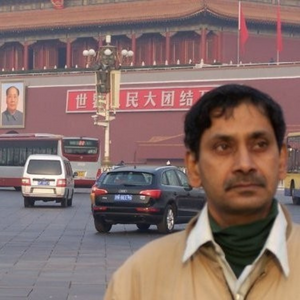
Soumya Dutta
Advisory Board member - UN Climate Technology Centre and Network, India
More than 30 years of experience on environmental advocacy and research. He is an Advisory Board member – UN Climate Technology Centre and Network; Co-convener : South Asian People’s Action on Climate Crisis SAPACC; Trustee – Movement for Advancing Understanding on Sustainability And Mutuality (MAUSAM); Convener : Bharat Jan Vigyan Jatha BJVJ /Founding member : India-Climate-Justice ICJ, and a Ashoka Fellow.

Chanda Gurung
Senior Gender Specialist, International Centre for Integrated Mountain Development, Kathmandu, Nepal
More than 30 years of experience on environmental advocacy and research. He is an Advisory Board member – UN Climate Technology Centre and Network; Co-convener : South Asian People’s Action on Climate Crisis SAPACC; Trustee – Movement for Advancing Understanding on Sustainability And Mutuality (MAUSAM); Convener : Bharat Jan Vigyan Jatha BJVJ /Founding member : India-Climate-Justice ICJ, and a Ashoka Fellow.

James Frank Momin
Ranger, Willaimnagar, Garohills, Meghalaya, India
More than 30 years of experience on environmental advocacy and research. He is an Advisory Board member – UN Climate Technology Centre and Network; Co-convener : South Asian People’s Action on Climate Crisis SAPACC; Trustee – Movement for Advancing Understanding on Sustainability And Mutuality (MAUSAM); Convener : Bharat Jan Vigyan Jatha BJVJ /Founding member : India-Climate-Justice ICJ, and a Ashoka Fellow.
9th Dec '21
09:30 -10:30 IST
Next-Gen Technology for Rewilding and Monitoring Natural Assets
In association with G-STIC/VITO

Steven Krekels
Unit Manager VITO Remote Sensing, VITO, Belgium
Steven Krekels has been the manager of VITO’s Remote Sensing unit since November 2014. VITO Remote Sensing develops and operates space- and airborne-based earth observation systems that translate raw data into consumable information about population, growth, urban development, agriculture & vegetation, natural disasters, and more.

Michael Anthony
Co-Founder, EarthAnalytics, Switzerland
Michael Anthony is a business development expert in emerging markets and was instrumental in kicking off the microinsurance business at Allianz that has grown into a portfolio of 40-million people insured in several markets in Africa and Asia. He has co-founded Earth Analytics India to use satellite data for risk assessments of natural resources.
The pursuit of developing a business model for the base of the economic pyramid also drives Michael. He wants to de-risk the shift to regenerative agriculture through financial instruments
Previously Michael had worked in the Allianz SE head office in Munich, driving the company’s climate change agenda and as a spokesperson for the company to the media and the public. Prior to joining Allianz, Michael worked as a journalist for German media outlets such as Spiegel Online from Israel and the Palestinian Territories and he founded and led a Berlin-based institute that connects journalists from different countries (www.journalists-network.org).
Michael speaks German, English, French, Hebrew and learns Italian.

Bremley Lyngdoh
Founder & CEO, Worldview Impact Foundation, UK
Dr. Bremley Lyngdoh is the Founder & CEO of Worldview Impact Foundation and is a Climate Change and Sustainable Development professional with over 20 years experience working with Governments, IGOs, NGOs and the Private Sector developing a range of innovative projects in Asia, Africa and South America aimed at producing ecologically sound and economically viable activities that contribute directly to reducing rural poverty, and generating productive sustainable livelihoods for vulnerable local communities. He now works extensively in the area of climate change adaptation through regenerating ecosystems and farmlands especially in the Eastern Himalayan region: whether the mangroves of Myanmar, or farmlands and degraded forests in Meghalaya. Through his involvement with initiatives like EarthBanc, Bremley is exploring the different ways in which new technologies from drones to blockchain can be used to transform lives, livelihoods and lands in the region. His previous assignments include working with the United Nations and the World Bank in Asia, Africa and Latin America.
9th Dec '21
10:30 -11:30 IST
DESIGNING POLICIES & SUSTAINABILITY MODELS FOR REWILDING THE FUTURE OF THE EASTERN HIMALAYAS

Dr. Yogesh Gokhale
Senior Fellow and Area Convenor, Centre for Biodiversity and Ecosystem Services, TERI, India
Dr Yogesh Gokhale holds a doctoral degree in Botany from Mumbai University. He currently works as Senior Fellow with The Energy and Resources Institute (TERI), New Delhi. He has more than 15 years of experience of working on diverse aspects of natural resource management, monitoring, and evaluation of watershed projects and ecological assessments of various ecosystems in different parts of India.
He has extensively worked on people and forest interface issues regarding conservation of biological resources such as sacred groves in India for the past several years. Some of his research topics include forest ecology, non-timber forest produce, medicinal plant conservation, community forestry, eco-development, and national and international biodiversity policy issues.
He completed his postdoctoral work at the Indian Institute of Science, Bangalore on biodiversity policy. Before joining TERI, he worked with the Ministry of Environment, Forest and Climate Change, Government of India, on the issues related to Convention on Biological Diversity.
At TERI, he is involved in a number of projects mainly related to natural resource management, carbon forestry, impact assessments, and biodiversity conservation. He has extensively published in national and international scientific journals, newspapers, and other media.

Ambassador Gautam Mukhopadhyay
India
Ambassador Gautam Mukhopadhaya, who has served as India’s Ambassador to the Republic of Myanmar, Syria and Afghanistan. During his diplomatic career, Ambassador Gautam Mukhopadhaya has also worked to promote India’s culture abroad and had coordinated the year long ‘Festival of India in France’ (1985-86). As a career diplomat he contributed significantly towards promotion of human rights, social development and advancement of women in International organisations such as the United Nations. He also served as Joint Secretary in the Ministry of Defence in charge of Planning and International Cooperation between 2002-2005.
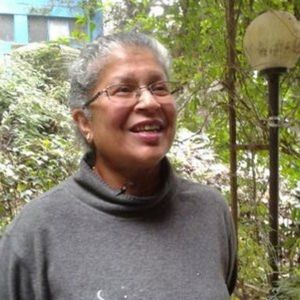
Usha Lachungpa
Retd. Principal Chief Research Officer, Dept. of Forest & Env., Govt. of Sikkim, India
Usha Lachungpa is a Green Crusader carrying forward the bio-cultural heritage of the Eastern Himalays through knowledge and awareness.Usha Lachungpa has extensive experience as she has worked with the Bombay Natural History Society as a field biologist on a Hydro-biology project in Keoladeo National Park and the Endangered Species project looking for critically threatened Lesser and Bengal Floricans in 15 Indian states. She also holds accolades for being the first Indian lady to do a Wildlife and Research Management course from Wildlife Institute of India in Dehradun, securing one gold and two silvers for her research during her post graduate diploma.
She has been presenting her work in India and abroad to highlight the major concerns of biodiversity and wildlife conservation in the Himalayas. In 1997, she was a recipient of the State Award for meritorious service by the Government of Sikkim and retired as the Principal Chief Research Officer and Additional Director for Sikkim Biodiversity Board cum State Project Coordinator UNEP GEF MOEFCC ABS Project. Usha’s extensive research has led to the enabling of other researchers and organizations from India and other countries to concentrate on various facets of biodiversity.
Knowing the amount of impeccable work done by Usha Lachungpa, she continues to be a pheasant members of the Specialist Group of IUCN, Life member of the Zoo Outreach organization, founder member of the NGOs such as Green Circle, Sikkim and Sikkim Ornithological Society.

Ankit Jha
Rural Futures Knowledge & Advocacy, Balipara Foundation, India
A post-graduate in Ecology, Environment and Sustainable Development from Tata Institute of Social Sciences, Ankit is associated with Balipara Foundation’s Naturenomics™ Executive Vertical as a researcher. Ankit brings in his sociological expertise to the organisation in analysing and resolutioning the trade-off between society and environment. As a Researcher, Ankit is involved in bridging knowledge gaps and develops publication material as a part of the foundation’s communication strategy. Currently, he is working on socio-economic and environmental policy research with regards to the Eastern Himalayan region and aims to contribute in building a sustainable future for the local communities as envisioned by the foundation. Ankit is also involved in a habitat restoration program at the Kaziranga National Park. His previous work stints have ranged from conducting socio-economic studies and stakeholder outreach while working on community centric mindful eco-tourism in Uttarakhand to developing communication materials and successfully conducted a research project on Climate Resilient Zero Budget Natural Farming in Andhra Pradesh, also studied the impact of ZBNF on biodiversity of the state.
9th Dec '21
11:30 -13:00 IST
ECOLOGICAL DIPLOMACY FOR CROSS-BORDER ADAPTATION

Professor Jianchu Xu
Kunming Institute of Botany, China
XU Jianchu, Professor of ethnoecology. Major research interests are the ethnoecology and human dimensions of global environmental change, including community-based conservation, land use/cover change, climate change impacts, and forest transitions and their implications for environmental service provision in mountain regions.

Ambassador Shyam Saran
Former Foreign Secretary of India & Prime Minister’s Special Envoy For Nuclear Affairs and Climate Change, India
Shyam Saran, senior fellow at CPR, is a former foreign secretary and has served as the Prime Minister’s Special Envoy for Nuclear Affairs and Climate Change, chairman of the National Security Advisory Board, and chairman of the Research and Information System for Developing Countries. He is currently a member of the governing board of CPR, Life Trustee of the India International Centre, a trustee of the World Wildlife Fund (India), a member of the National Executive of FICCI, and an independent director at the Press Trust of India

Vibha Dhawan
Director General, TERI, India
Dr Vibha Dhawan has been associated with The Energy and Resources Institute since 1985. She also served as the Vice-Chancellor of TERI School of Advanced Studies from 2005-2007. She is a Fellow of the National Academy of Sciences, India. Dr Dhawan is actively involved in research as well as policy development, both at the national and international level. She is a task force member of a number of committees of the Department of Biotechnology (DBT), the Biotechnology Industry Research Assistance Council (BIRAC), the Biotech Consortium India Limited (BCIL) etc. She has served in multiple senior advisory positions, including on bioresources to the Late Tarun Gogoi, and has served on the boards of prestigious organizations in India and overseas including Jawahar Lal Nehru University, Ambedkar University, Ayurvet Foundation and Centre for Agriculture and Bioscience International (CABI).
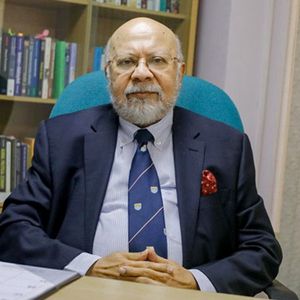
Ambassador Tariq Ahmed Karim
Director, Centre for Bay of Bengal Studies, Bangladesh
Ambassador Ahmad Tariq Karim is a career diplomat of Bangladesh. He is currently Director, Centre for Bay of Bengal Studies at Independent University, Bangladesh.
As Additional Foreign Secretary of Bangladesh with responsibility for the South Asian region (1995-97), Ambassador Karim helped the then newly elected Prime Minister to formulate strategy for normalization of relations with India, including the ending of cross border insurgency problems that had plagued relations between the two countries for over two decades. He was entrusted with a critically important role in negotiating the 30-year Ganges Water Sharing Treaty with India (signed in December 1996), which marked a turning point in relations between the two neighbors. Ambassador Karim also championed government policy to promote sub-regional cooperation between Bangladesh, Bhutan, India, and Nepal — as a means of working towards economic development and security for all four nations

Ranjit Barthakur
Founder, Balipara Foundation
A social entrepreneur, committed to pursuing social change through innovative cutting edge concepts, ecological neutrality and impactful action, Ranjit has pioneered the concepts of Naturenomics™ Executive and Rural Futures at Balipara Foundation, with a view to inspiring community-based conservation and livelihoods in the Eastern Himalayas. Though his journey began with ITC Mumbai, his heart and soul has always been in Assam. Partnering with Globally Managed Services & the Balipara Foundation, he gives back to the indigenous communities of the Eastern Himalayas via projects focused on strengthening ecological civilizations and building social mobility through natural capital. Under his mentorship as Trustee and President of the Balipara Foundation, the social enterprise, the Eastern Himalayan Botanic Ark in residence at Wild Mahseer, has become a hub for mindful tourism in Balipara County, Assam and has been instrumental in catalyzing the natural history and cultural heritage of the Brahmaputra valley in Assam. As Chairman of FICCI’s North East Advisory Council he has also contributed to the growth and development of the Northeast by facilitating the implementation of Public-Private Partnerships in the health, tourism and connectivity sectors. Through his position as a Senior Advisor-NE programmes with Tata Trusts, he is working to create development impact in areas of health, education & livelihoods. Additionally, he has developed the multi-disciplinary platform, the Eastern Himalayan NNaturenomics™ Executive Forum, to foster global collaborations for conservation actions and solutions in the heart of the Eastern Himalayas. Ranjit is the thought leader behind a series of Naturenomics™ Executive publications dedicated to tackling various pressing ecological and socioeconomic issues with a focus on the Eastern Himalayas. Through the Balipara Foundation, he has also supported the launch of several nature-based publications and a digital application to build a rich repository of knowledge for Rural Futures. Ranjit has served in diverse roles in both the private and public sector, most notably as an advisor to the ex-Chief Minister of Assam. He brings over 40 years of expertise in FMCGs, the hospitality sector, IT, sustainability practices in business and sports to his numerous concerns. He is also the present Chairman and Director of the Indian Premier League team, the Rajasthan Royals, encouraging the role of sports and education for the nation’s development.


